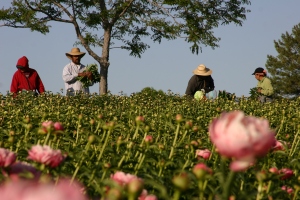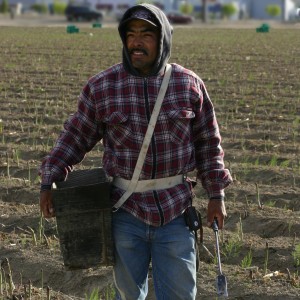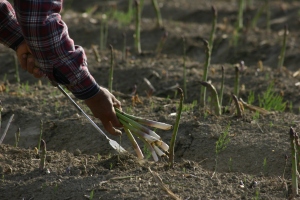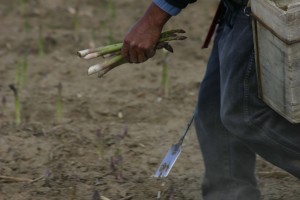Cold weather is influencing the harvest of crops in the Yakima Valley. Grapes are being harvested at night all around me. Most, but not all of the field corn is in storage. Some apples remain to be picked. Peppers and other vegetable crops are victims of frost. For weeks now many hay trucks have been hauling their product to or from farmers.
Harvest season for hops has been more or less over for a about a week. But during the active season, night and day, workers riding on specialized machines detach the hop vines from their supports and load them to trucks. The hops are then taken from the fields and loaded onto mechanisms that propel them through machinery that removes most leaves, stems or other debris.
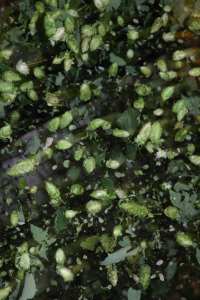
Despite the many advances in mechanization at the various stages of hop production, there are still many migrant farm workers that handle the crop.
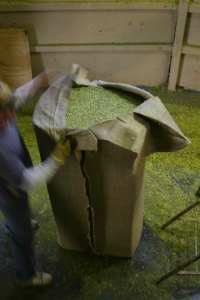 The final step of the process at the facility prior to transport is to bale the hops. As the compressed bale exits the machine, partially wrapped, workers move it quickly to the floor to hand sew each end. Each bale is then marked and will be taken by truck to the storage facilities.
The final step of the process at the facility prior to transport is to bale the hops. As the compressed bale exits the machine, partially wrapped, workers move it quickly to the floor to hand sew each end. Each bale is then marked and will be taken by truck to the storage facilities.



 Posted by sicilyislandhills
Posted by sicilyislandhills 